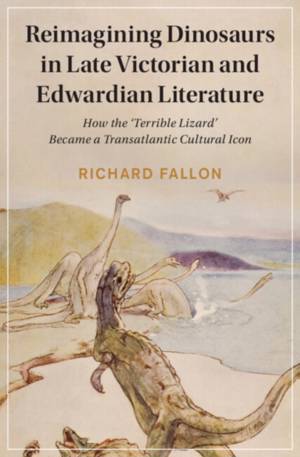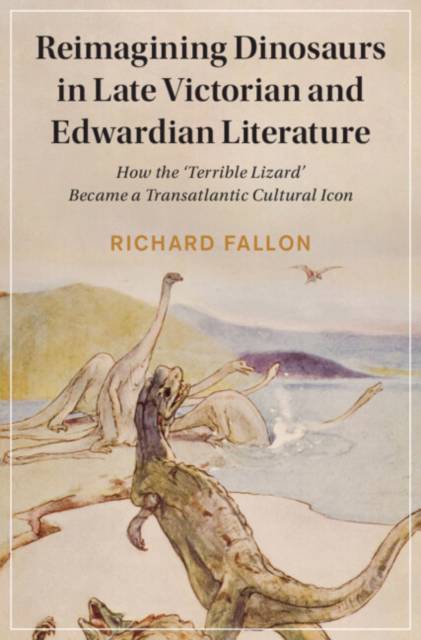
- Afhalen na 1 uur in een winkel met voorraad
- Gratis thuislevering in België vanaf € 30
- Ruim aanbod met 7 miljoen producten
- Afhalen na 1 uur in een winkel met voorraad
- Gratis thuislevering in België vanaf € 30
- Ruim aanbod met 7 miljoen producten
Zoeken
Reimagining Dinosaurs in Late Victorian and Edwardian Literature
How the ‘Terrible Lizard' Became a Transatlantic Cultural Icon
Richard Fallon
€ 144,45
+ 288 punten
Omschrijving
When the term 'dinosaur' was coined in 1842, it referred to fragmentary British fossils. In subsequent decades, American discoveries--including Brontosaurus and Triceratops--proved that these so-called 'terrible lizards' were in fact hardly lizards at all. By the 1910s 'dinosaur' was a household word. Reimagining Dinosaurs in Late Victorian and Edwardian Literature approaches the hitherto unexplored fiction and popular journalism that made this scientific term a meaningful one to huge transatlantic readerships. Unlike previous scholars, who have focused on displays in American museums, Richard Fallon argues that literature was critical in turning these extinct creatures into cultural icons. Popular authors skilfully related dinosaurs to wider concerns about empire, progress, and faith; some of the most prominent, like Arthur Conan Doyle and Henry Neville Hutchinson, also disparaged elite scientists, undermining distinctions between scientific and imaginative writing. The rise of the dinosaurs thus accompanied fascinating transatlantic controversies about scientific authority.
Specificaties
Betrokkenen
- Auteur(s):
- Uitgeverij:
Inhoud
- Aantal bladzijden:
- 217
- Taal:
- Engels
- Reeks:
- Reeksnummer:
- nr. 132
Eigenschappen
- Productcode (EAN):
- 9781108834001
- Verschijningsdatum:
- 4/11/2021
- Uitvoering:
- Hardcover
- Formaat:
- Genaaid
- Afmetingen:
- 152 mm x 229 mm
- Gewicht:
- 576 g

Alleen bij Standaard Boekhandel
+ 288 punten op je klantenkaart van Standaard Boekhandel
Beoordelingen
We publiceren alleen reviews die voldoen aan de voorwaarden voor reviews. Bekijk onze voorwaarden voor reviews.











